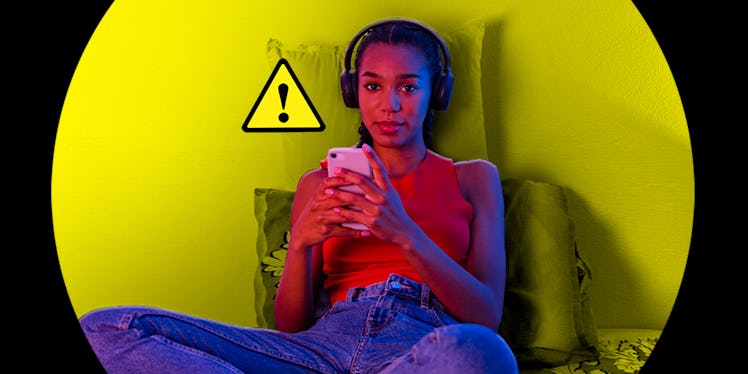Apple Will Likely See My Kid Sexting. It’s Time for a Serious Talk.
Apple's plan to combat child pornography will no doubt run afoul of teen sexual explorations

Apple has announced that it will surveil devices for images of child sexual abuse and report offenders to the police. While the questions surrounding privacy and technology are nuanced and heated, the intentions are noble — the fewer people exploiting children for pornography, the better. But as a father of boys who are on the cusp of puberty and cell phone ownership, I realize that Apple’s announcement has not only changed the privacy conversation I will have with them, but makes it more urgent. Parents now must stress to teens that they should not assume the privacy of their digital communications. Someone in a dark room somewhere will likely see their nudes, and it won’t be the person they are crushing on. Moreover, the potential outcomes could be extremely significant.
I wish that were hyperbole. It’s not.
A quick rundown of what apple intends to do: An algorithm will scan user images as they are loaded into iPhotos and compare their digital signature against an independently maintained database of known child sexual abuse images. Once a match has been determined the image will be assessed by a human who will then alert law-enforcement if deemed appropriate. The problem is that there is a lot left unexplained.
Parents can make reasonable assumptions about the risk to their children based on what is already known. First, teens have already been prosecuted for distribution of child pornography and placed on sex offender registries for otherwise benign sexting between consenting same-age partners. Second, Apple’s announcement is scant on details. What keeps the human reviewer from looking at false positives that could include nude images taken by a teen themselves? Further, what keeps the human reviewer from then contacting law enforcement about otherwise innocent images they might deem illegal?
For this parent, it poses a serious conundrum. Like it or not, I have to acknowledge and accept that my boys are exploring, and will continue to explore their sexuality. It is a normal and universal feature of human development. In the earliest ages it’s playing “doctor” or sneaking off for a game of “I’ll show you mine if you show me yours.” And it’s predicated on a deep sense of curiosity about what bodies look like and do.
To date our conversations about their bodies have been frank and honest. We don’t use euphemisms to talk about their genitals and we urge privacy rather than shame when they are engaging in self-exploration. But my boys are getting older and the curiosity and exploration will extend beyond themselves sooner than I’d like to think. And I’d be naive to imagine that in order to facilitate that exploration they wouldn’t use all the tools at their disposal, be it a couch cushion or a cell phone.
And this is where Apple’s announcement will so greatly influence our ongoing conversations about bodies and privacy. Bodies are good and wonderful and it’s normal to want to share them with other people as we get older and develop intimate relationships. But when it comes to privacy there should be zero assumption that any digital communication that is made on any device is private. In a sense it’s a riff on the religious conservative teachings — “God is always watching!” — meant to scare children away from exploring sexuality. Except in this case, the omnipotent presence is not a deity but an overzealous, fallible, highly intrusive for-profit corporation. In many ways, God is far less threatening.
So, along with their first cell-phones, they will recieve a new sex talk: If you must play “I’ll show you mine if you show me yours,” do it in person behind closed doors. Because if you do it over text, your privacy, your body and perhaps even your freedom could be forfeit.